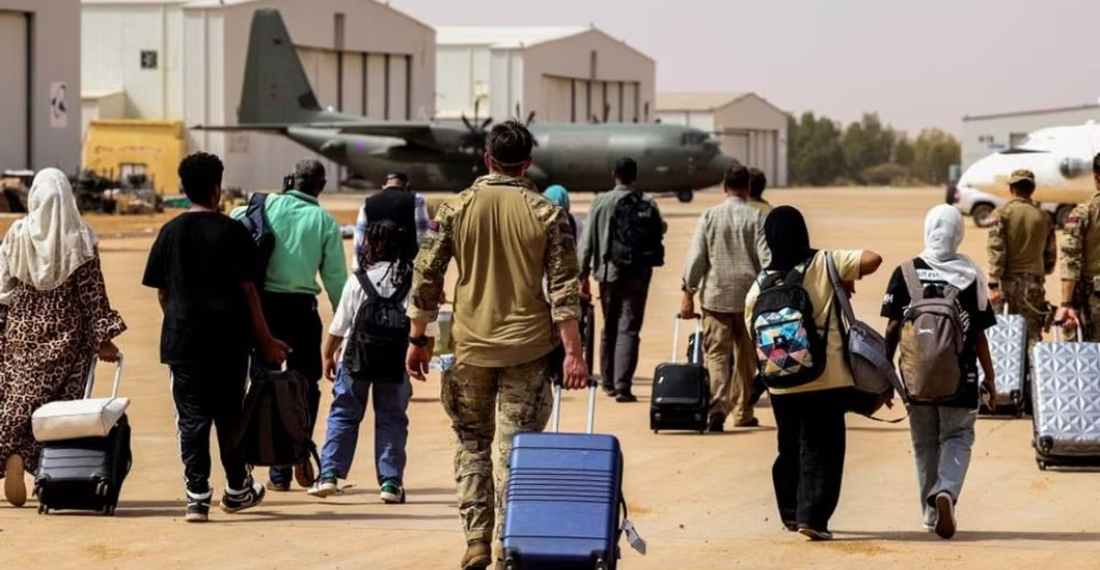U.S. President Joe Biden has called the ongoing violence in Sudan an "unconscionable betrayal" in a statement made at the White House on Thursday (4 May).
The fighting, which will enter its fourth week this weekend, broke out on Saturday 15 April after the Sudanese army and a rival paramilitary group, the Rapid Support Forces, failed to reach an agreement over a transition to a civilian government.
“The violence taking place in Sudan is a tragedy — and it is a betrayal of the Sudanese people’s clear demand for civilian government and a transition to democracy,” President Biden said.
“I join the peace-loving people of Sudan and leaders around the world in calling for a durable ceasefire between the belligerent parties.”
Meanwhile, also on Thursday, the U.S. state department announced that it had completed its evacuation of at least 1,300 U.S. citizens in Sudan, as well as evacuating at least 700 more from other countries.
Fighting restarts in Khartoum after fragile ceasefire ends, 17,000 tonnes of food aid looted
Air strikes and heavy shelling returned to the Sudanese capital city of Khartoum on Thursday as a fragile and frequently violated ceasefire lapsed.
Residents have said that the renewed fighting seriously disrupted attempts at delivering aid to people trapped inside the city, where since mid-April supplies of food and water have dwindled.
The day before, the United Nations warned of an impending "humanitarian catastrophe" in Sudan, while Atiya Atiya, the secretary of the country’s doctors’ syndicate, told Associated Press that the situation was "very dire".
The World Food Programme country director, Eddie Rowe, has said that some 17,000 tonnes of food aid have been looted since fighting broke out, "some in our warehouses, while others on wheels". Speaking to Reuters, he added "this would translate to about $13 million or $14 million — just the cost of the food. Almost every day we are receiving reports of additional looting."
"We know that if we do not procure commodities now, we are going to run out of stock in the next two to three months," he said.
Arab League to discuss Sudan crisis
On Sunday (7 May), Arab League foreign ministers are due to hold emergency meetings to discuss the crisis in Sudan.
In the meeting, the group will also discuss the readmission of Syria into the group after its membership was suspended in November 2011.







